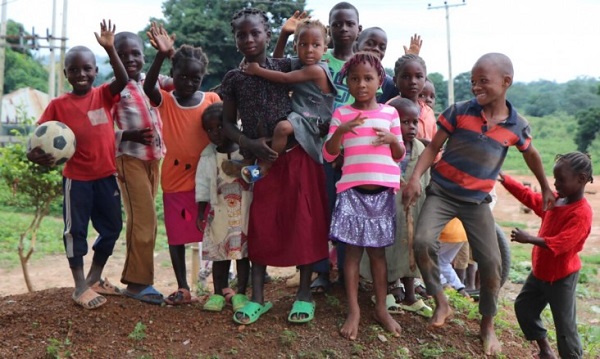
The Federal Government has identified a huge gap in childhood tuberculosis diagnosis stating that despite the progress being made in finding missing TB cases and treatment, there is poor notification for child TB cases.
The Minister of Health, Dr. Osagie Ehanire, who disclosed this in his keynote address at the ministerial press briefing in commemoration of 2022 World TB Day in Nigeria, said the poor notification is due to capacity gaps among healthcare workers in diagnosing tuberculosis amongst children.
Ehanire said Nigeria had the highest number of child TB cases of 12,977 in 2021 and the child TB proportion amongst the overall TB notification for the same year was 6 per cent as the figure is far lower than the World Health Organisation (WHO) benchmark of 12 per cent, implying a high proportion of missing child TB cases in Nigeria.
He further revealed that the government’s drug-resistant tuberculosis (DR-TB) response has equally not yielded the desired results, as barely 2,975 (14 per cent) of the estimated 21,000 DR-TB cases were notified in 2021and another disturbing trend is the low enrolment rate of diagnosed DR-TB patients on treatment.
“Only 2,197 (74 per cent) of diagnosed DR-TB patients were enrolled for treatment in 2021. This is not encouraging, as it is a far cry from our target of 100 per cent enrolment for diagnosed DR-TB patients. These untreated DR-TB patients constitute a time bomb. They continuously spread DR-TB in our communities.”
The minister stated that TB preventive treatment (TPT) is also another concerning aspect of the TB response and, in 2021, Nigeria achieved only 7 per cent of its target for TPT amongst under-5 and above contacts of bacteriologically confirmed TB patients.
In response to the aforementioned challenges, Ehanire disclosed that the Federal Government is committed to implementing the road map towards ending tuberculosis, as this aligns with the commitment made by President Muhammadu Buhari to end TB at the first-ever United Nations High-level Meeting (UNHLM) on TB in New York, United States in September 2018.
“In line with the commitment, we developed and are currently implementing a road map for translating the commitments into action. As earlier highlighted, these efforts are gradually yielding the desired results as we were able to achieve 48 per cent of our UNHLM TB case finding targets for 2021. Let me inform you that despite the COVID-19 pandemic, Nigeria was commended for being among few countries with increased TB notification rather than a drop in 2020.”
Ehanire, however, affirmed that this year’s World TB Day themed “Invest to END TB, Save Lives” and slogan “Give More, Do More, End TB Now!” are apt and fully align with the nation’s initiative to kick out TB.
On his part, in his goodwill message, the country representative, World Health Organisation, Dr. Walter Molumbo, reinstated the urgent need for more resources to be invested to ramp up the fight against TB in line with commitments made by global leaders at the first-ever UN High-level Meeting on TB in 2018 which, for Nigeria, was to diagnose and treat 1,109,000 TB cases and place 2,183,890 clients on TB preventive therapy (TPT) between 2018 and 2022.
Molumbo further stated that TB remains [one of the] top 10 causes of death worldwide and the leading cause of death from a single infectious agent with an estimated 10 million people contrcting it in 2020, with Nigeria and seven other countries accounting for two-thirds of this global burden.
He, however, advocated for the inclusion of Tuberculosis treatment in the health insurance scheme.
“The minister may, therefore, consider call on all states to include TB in their health insurance schemes as they become operational.
“WHO will continue to [lend] support towards keeping TB control strategies up to date, strengthening partnerships, fostering innovation, finding missing cases and building capacity for all facets of TB control.”
In her remarks, USAID Nigeria director, Rachel Goldstein, noted the 70 per cent funding gap for tuberculosis hence the need to mobilise domestic resources to fill this gap through budgetary allocation and innovations in health insurance.

